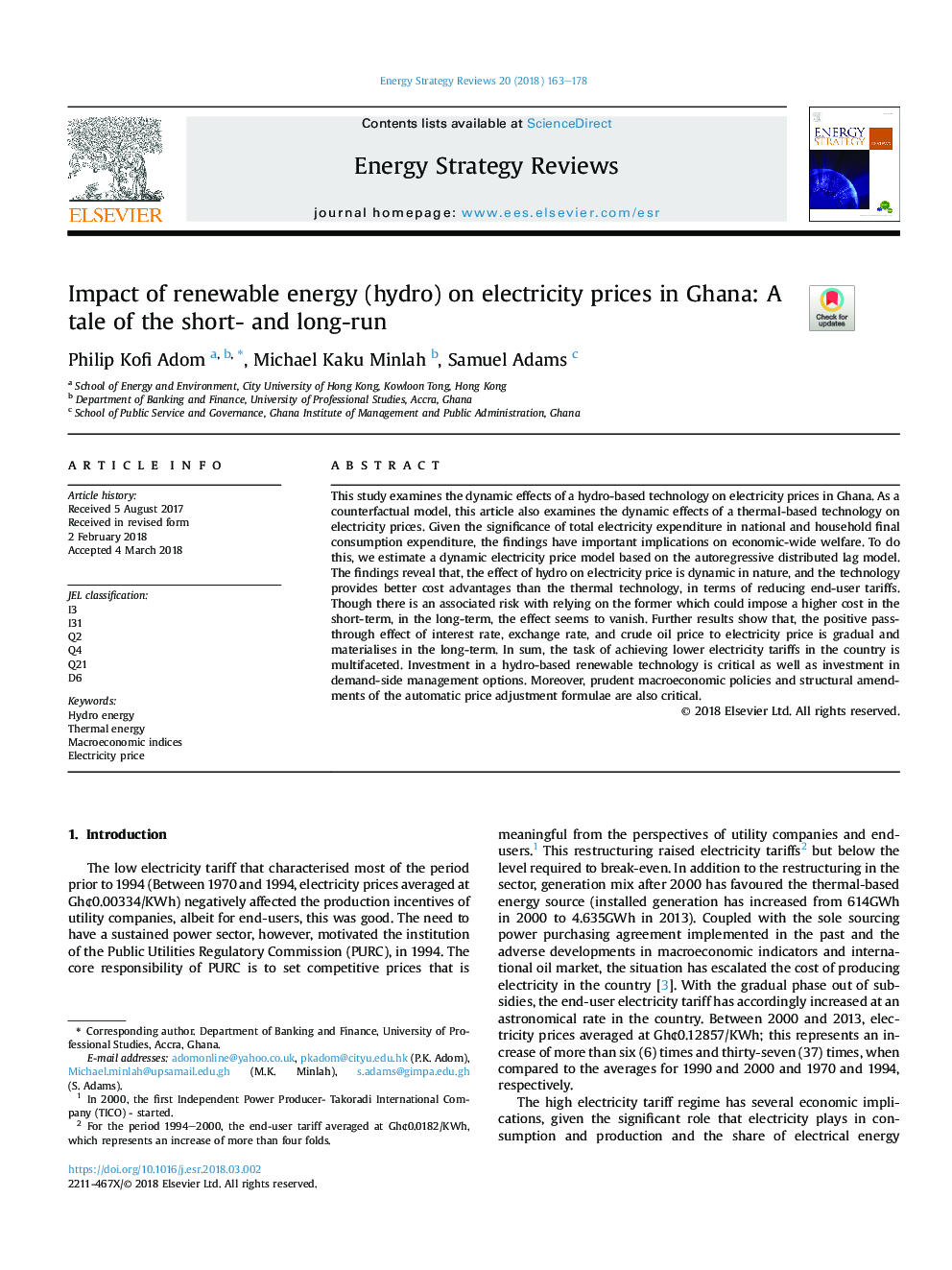| Article ID | Journal | Published Year | Pages | File Type |
|---|---|---|---|---|
| 7434553 | Energy Strategy Reviews | 2018 | 16 Pages |
Abstract
This study examines the dynamic effects of a hydro-based technology on electricity prices in Ghana. As a counterfactual model, this article also examines the dynamic effects of a thermal-based technology on electricity prices. Given the significance of total electricity expenditure in national and household final consumption expenditure, the findings have important implications on economic-wide welfare. To do this, we estimate a dynamic electricity price model based on the autoregressive distributed lag model. The findings reveal that, the effect of hydro on electricity price is dynamic in nature, and the technology provides better cost advantages than the thermal technology, in terms of reducing end-user tariffs. Though there is an associated risk with relying on the former which could impose a higher cost in the short-term, in the long-term, the effect seems to vanish. Further results show that, the positive pass-through effect of interest rate, exchange rate, and crude oil price to electricity price is gradual and materialises in the long-term. In sum, the task of achieving lower electricity tariffs in the country is multifaceted. Investment in a hydro-based renewable technology is critical as well as investment in demand-side management options. Moreover, prudent macroeconomic policies and structural amendments of the automatic price adjustment formulae are also critical.
Related Topics
Physical Sciences and Engineering
Energy
Energy (General)
Authors
Philip Kofi Adom, Michael Kaku Minlah, Samuel Adams,
